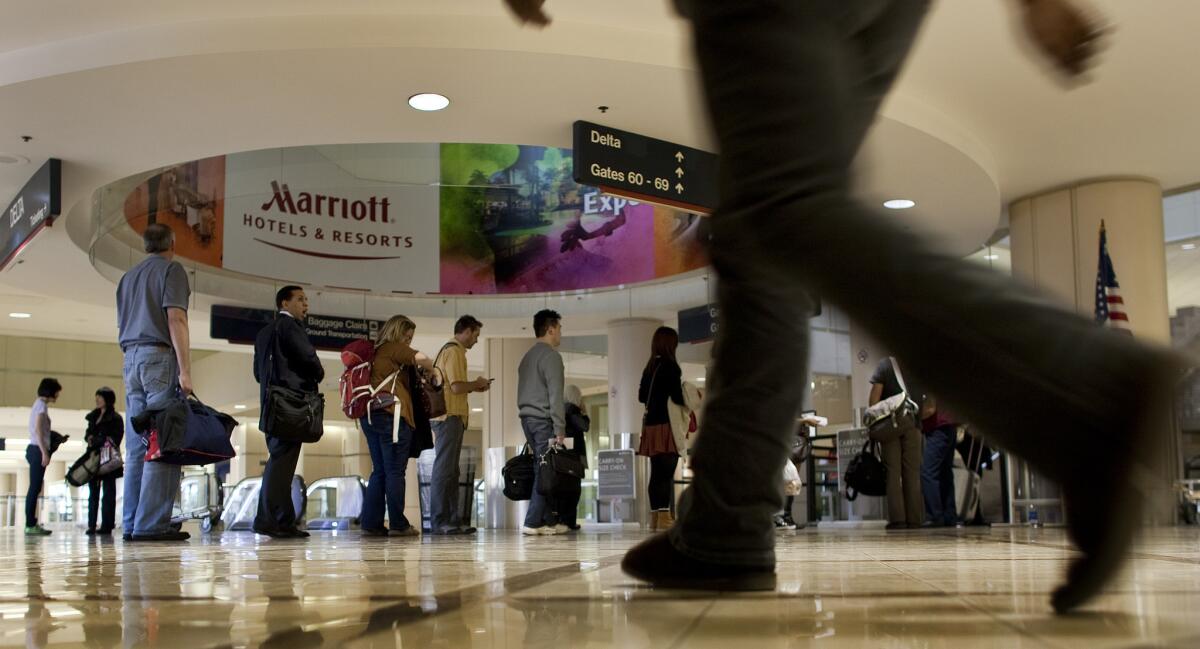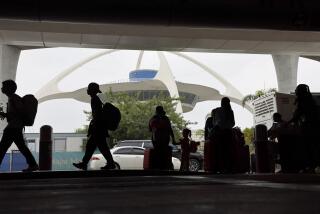TSA ‘PreCheck’ expansion expected to enroll 88,000 in six months

A new pilot program to let travelers who pay a fee use faster airport screening lines is expected to draw more than 88,000 travelers in the first six months.
The Transportation Security Administration made the estimate as it prepares to expand the use of the so-called PreCheck screening lines, available at 40 airports across the country, including Los Angeles International.
Travelers who go through the PreCheck lines can avoid some typical usual screening procedures, such as removing shoes, belts, coats and taking laptop computers out of cases.
Until now, PreCheck was only offered to members of certain airport loyalty programs and trusted traveler programs run by the U.S. Customs and Border Patrol.
Starting later this year, the TSA will allow all travelers who pay a $85 fee and submit background information, including fingerprints, to qualify for the program for five years.
In a report filed this week, the TSA estimated that 88,111 travelers would apply for the program in the first six months, with an additional 383,131 fliers applying in the following year.
The vetting process will take two to three weeks, the TSA said.
“The TSA PreCheck Trusted Traveler Program will enhance aviation security by permitting TSA to better focus its limited security resources on passengers who are more likely to pose a threat to civil aviation,” the report said.
To apply, passengers can send background information online via a secure Web portal and submit fingerprints and other biometric data in person at an enrollment center.
The first two enrollment centers, at Washington Dulles International Airport and Indianapolis International Airport, will open this fall with plans to expand to additional enrollment sites nationwide.
ALSO:
TSA agents are slow but methodical, study finds
TSA moves to expand use of faster airport screening lines
TSA considers using ‘randomizer’ when screening travelers
More to Read
Inside the business of entertainment
The Wide Shot brings you news, analysis and insights on everything from streaming wars to production — and what it all means for the future.
You may occasionally receive promotional content from the Los Angeles Times.











